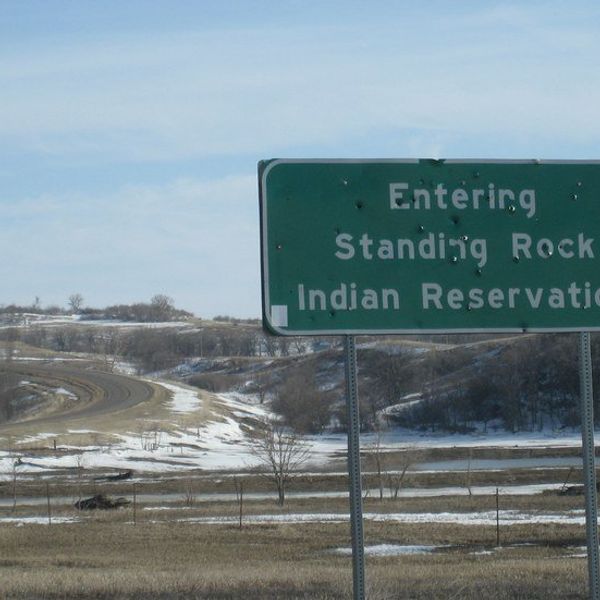In early February, the United States Army Corps of Engineers have granted an easement to continue the construction of the Dakota Access Pipeline (DAPL) beneath Lake Oahe. Just two months ago, President Obama denied an easement, effectively halting the pipeline for a short time. This came alongside a massive response from the veterans community, who showed up 2,000-strong to protect the Native American community at Standing Rock. Veterans are again assembling and plan to make a second trip to the Standing Rock Reservation.
The Secretary of the Army also denied the need to perform an environmental impact statement. Part of a statement released by Senator John Hoeven (R-ND) reads:
“Today, the Army Corps of Engineers granted the final easement required to complete the Dakota Access Pipeline project, which will be equipped with the latest safeguards and technology to protect the Standing Rock Sioux and all people downstream. Also it will make our country stronger and more secure by helping us produce and transport more domestic energy instead of importing it from the Middle East.” - Sen. John Hoeven (R-ND).
The struggle to stop the DAPL is not over. Days before the Army Corps of Engineers would announce their final easement decision, Seattle became the first city to cut ties with a major bank funding the pipeline. This bank is none other than Wells Fargo. The decision by the Seattle city council in ending its relationship with Wells Fargo was unanimous, 9-0. Seattle is known for being at the front lines of social, economic, and environmental justice issues. The council ordinance contains measures and language on socially-responsible banking, relevant beyond the DAPL issue. Toward the end of 2016, it was discovered that Wells Fargo had opened two million fraudulent bank accounts at the unjust expense of their own customers.
Bill De Blasio, Mayor of New York City, is also considering cutting ties with DAPL investors.
Mayor De Blasio is a vocal opponent of President Trump and the Dakota Access Pipeline. If protesting on the ground and challenging the legal system is not working, the next best thing is to vote with our wallets and divest. If a city does not support the fossil fuel industry’s ignorance of environmental and community health, they may expand their renewable energy infrastructure and begin divesting from fossil fuels. The actions taken by Seattle and potentially New York City would not be divesting, but simply pulling contracts with banks funding the pipeline.
On January 30th, a pipeline in Texas experienced a leak which leaked 600,000 gallons of oil. In under a year of operation, the Seaway Pipeline leaked twice. Enbridge is a co-owner of the Dakota Access Pipeline. The federal EPA is not allowed to speak on this issue or related issue due to a gag order from President Trump lasting until the EPA confirms a new administrator, Scott Pruitt.
When a pipeline company claims that a pipeline is “safe”, that means that it is safe according to existing laws and regulations. However, even the stricter regulations can miss the point of what constitutes long-term environmental and social damage. Leak detection equipment can fail, as seen by a pipeline in North Dakota two months ago. The spill resulted in 176,000 gallons of crude oil into a nearby creek, 150 miles from the Standing Rock protests.
Head over to the Sacred Stone Camp site to find out how to take action, donate supplies or funds for legal aid, and help to finally stop the DAPL.




















